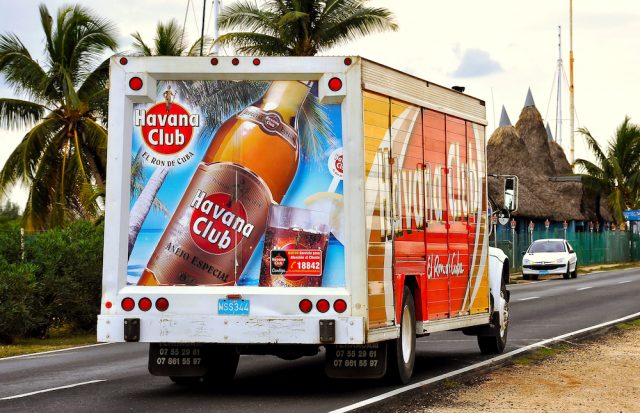Biden blocks Cuban trademarks, boosting Bacardi’s Havana Club claim
The prospect of Pernod Ricard and Cubaexport being able to import their Havana Club rum brand to America has receded.

On Sunday President Joe Biden signed a bill which bans the recognition of trademarks confiscated by Fidel Castro’s regime following the communist takeover of Cuba in the 1950s.
The new law blocks American courts and federal agencies from “enforcing or validating” trademarks seized following the Cuban Revolution.
This strengthens Bacardi’s rights to the “Havana Club” rum brand in the United States following a long-running legal dispute.
Bacardi, which was exiled from Cuba after the Communist revolution, says that the Cuban government unlawfully seized the Havana Club name and assets from Jose Arechabala SA in 1960.
History of the Havana Club trademark
Jose Arechabala’s brand was subsequently produced in Puerto Rico and began selling in the United States in 1995.
The original brand was passed by Castro to the state-run Cubaexport, which sells its Havana Club rum throughout the rest of the world through Pernod Ricard.
The brand is one of the most significant in the French group’s premium portfolio.
Cuba’s foreign minister Bruno Rodriguez Parrilla said: “The [legislation] signed by Biden modifies the law in an aggression against Cuba, in order to open the door, in violation of international law, for the theft of Cuban brands legitimately registered in that country.”
Partner Content
Pernod Ricard said it was disappointed by the legislation “which calls into question its longstanding rights to the Havana Club trademark in the United States – a trademark that Pernod Ricard and its joint-venture partner, Cubaexport, have legitimately held since 1976.
Congressional intent behind the legislation
This legislation does not immediately revoke the current rights to the Havana Club trademark in the United States, which will remain under the ownership of Cubaexport until their expiration in 2026.
“Until then, Pernod Ricard and Cubaexport are considering all their options to safeguard their rights.
The wrangle is one of the longest running in US commercial history following Cubaexport registering its Havana Club trademark in America in 1976.
The new law, titled the “No Stolen Trademarks Honored in America Act,” does not explicitly refer to Bacardi or Pernod Ricard, both of which had lobbied Congress over the bill, federal records show.
A Congressional committee report, said the law was meant to resolve the Havana Club controversy and “prevent anyone from using U.S. agencies to benefit from intellectual property stolen from its rightful owner.”
Bacardi sued Cubaexport in Washington in 2004 after the US Patent and Trademark Office refused to cancel the mark. Cubaexport later countersued Bacardi for U.S. trademark infringement.
In October a judge in Washington DC ruled that the US trade embargo against Cuba bars Cubaexport from taking its case further.
Related news
Pernod Ricard sells Mumm Napa to Trinchero in portfolio shake-up
Pernod Ricard names next Corby Spirit CEO
Pernod Ricard rolls out its SIP Supernova programme globally




